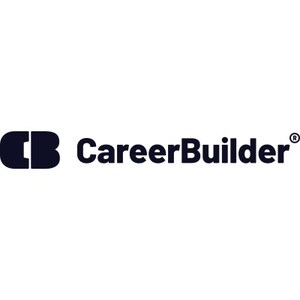Forty-three Percent of Workers Say their Office has Cliques, Finds CareerBuilder Survey
Common high school personas associated with office clique membership
Workers rank which departments are smartest and most social, intelligent, attractive
CHICAGO, July 24, 2013 /PRNewswire/ -- Are the social dynamics in a typical U.S. workplace all that different from a U.S. high school? A new CareerBuilder survey found that 43 percent of workers say their office or workplace is populated by cliques.
The nationwide survey—conducted by Harris Interactive on behalf of CareerBuilder from May 14 to June 5, 2013, among a representative sample of nearly 3,000 full-time, private sector U.S. workers—found that cliques can affect workplace culture in a variety of ways.
What do Workers do to Fit In?
While only one in ten workers (11 percent) said they felt intimidated by office cliques, 20 percent of workers said they've done something they're really not interested in or didn't want to do just to fit in with co-workers. Forty-six percent in this subgroup simply went to happy hours to fit in, but the reluctant, adaptive behavior doesn't end there. Some other activities include:
- "Watched a certain TV show or movie to discuss at work the next day" – 21 percent
- "Made fun of someone else or pretended not to like them" – 19 percent
- "Pretended to like certain food" – 17 percent
- "Took smoke breaks" – 9 percent
Moreover, about 1 in 7 said they hide their political affiliation to fit in (15 percent), ten percent don't reveal personal hobbies, and nine percent keep their religious affiliations and beliefs a secret.
Bosses and Office Cliques
"Thirteen percent of workers said the presence of office cliques has had a negative impact on their career progress," says Rosemary Haefner, vice president of Human Resources at CareerBuilder. "While it's human nature to associate with peers who possess similar personality types and characteristics, cliques can be counterproductive in the workplace. We see more managers using team-building activities or assembling people from different groups to work on projects to help discourage behaviors that can alienate others."
The survey found that not all managers succeed at staying neutral. Nearly half of those workers whose workplaces have cliques (46 percent) say their boss is a part of clique with some of his or her employees.
High School Personas and Office Cliques
According to the survey, workers who fit a specific persona in high school are also more likely to be in an office clique. Participants were asked to describe their high school selves as one of the following stereotypical archetypes: athlete, honor society, cheerleader, drama club, geek, class clown, student government, teacher's pet, band/choir.
Former "class clowns," "geeks," and "athletes" were the most likely to say they currently belong to an office clique in their job today. Interestingly, participants who chose not to self-identify as fitting one of the above personas are the least likely to be a part of an office clique.
Additionally, 17 percent of those workers who consider themselves to be introverts are members of an office clique, compared to 27 percent of extroverts.
How do Workers Perceive Colleagues in Other Departments?
Stepping beyond small office cliques to look at the organizational structure of entire companies, the survey found that different departments are widely perceived as owning distinctive traits. Workers chose which department best embodied the following categories:
Most Social: Customer Service
Smartest: Information Technology
Most Attractive: Sales
Most Productive: Production & Quality
Most Intimidating to an Outsider: Legal
Survey Methodology
This survey was conducted online within the U.S. by Harris Interactive© on behalf of CareerBuilder among 2,999 workers (employed full-time, not self-employed, non-government) between May 14 and June 5, 2013 (percentages for some questions are based on a subset, based on their responses to certain questions). With a pure probability sample of 2,999 one could say with a 95 percent probability that the overall results have a sampling error of +/- 1.79 percentage points. Sampling error for data from sub-samples is higher and varies.
About CareerBuilder®
CareerBuilder is the global leader in human capital solutions, helping companies target and attract great talent. Its online career site, CareerBuilder.com®, is the largest in the United States with more than 24 million unique visitors, 1 million jobs and 50 million resumes. CareerBuilder works with the world's top employers, providing resources for everything from employment branding and talent and compensation intelligence to recruitment solutions. More than 10,000 websites, including 140 newspapers and broadband portals such as MSN and AOL, feature CareerBuilder's proprietary job search technology on their career sites. Owned by Gannett Co., Inc. (NYSE: GCI), Tribune Company and The McClatchy Company (NYSE: MNI), CareerBuilder and its subsidiaries operate in the United States, Europe, South America, Canada and Asia. For more information, visit www.careerbuilder.com
Media Contact
Ryan Hunt
773-527-6923
[email protected]
http://www.twitter.com/CareerBuilderPR
SOURCE CareerBuilder
WANT YOUR COMPANY'S NEWS FEATURED ON PRNEWSWIRE.COM?
Newsrooms &
Influencers
Digital Media
Outlets
Journalists
Opted In




Share this article